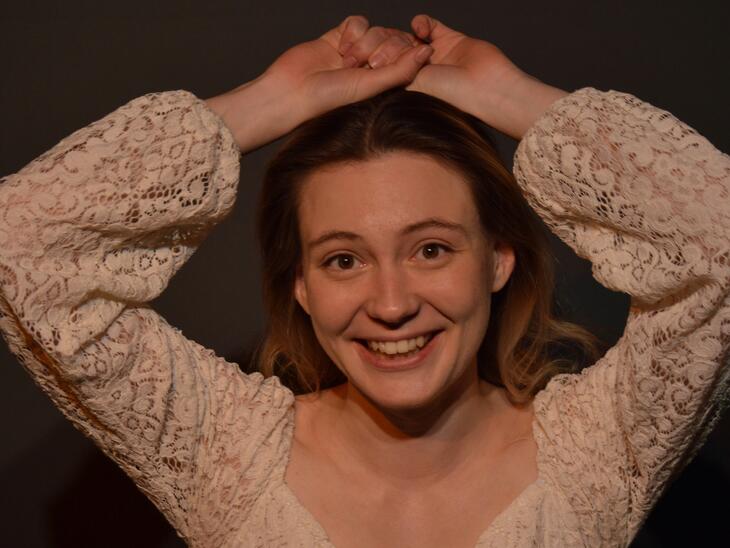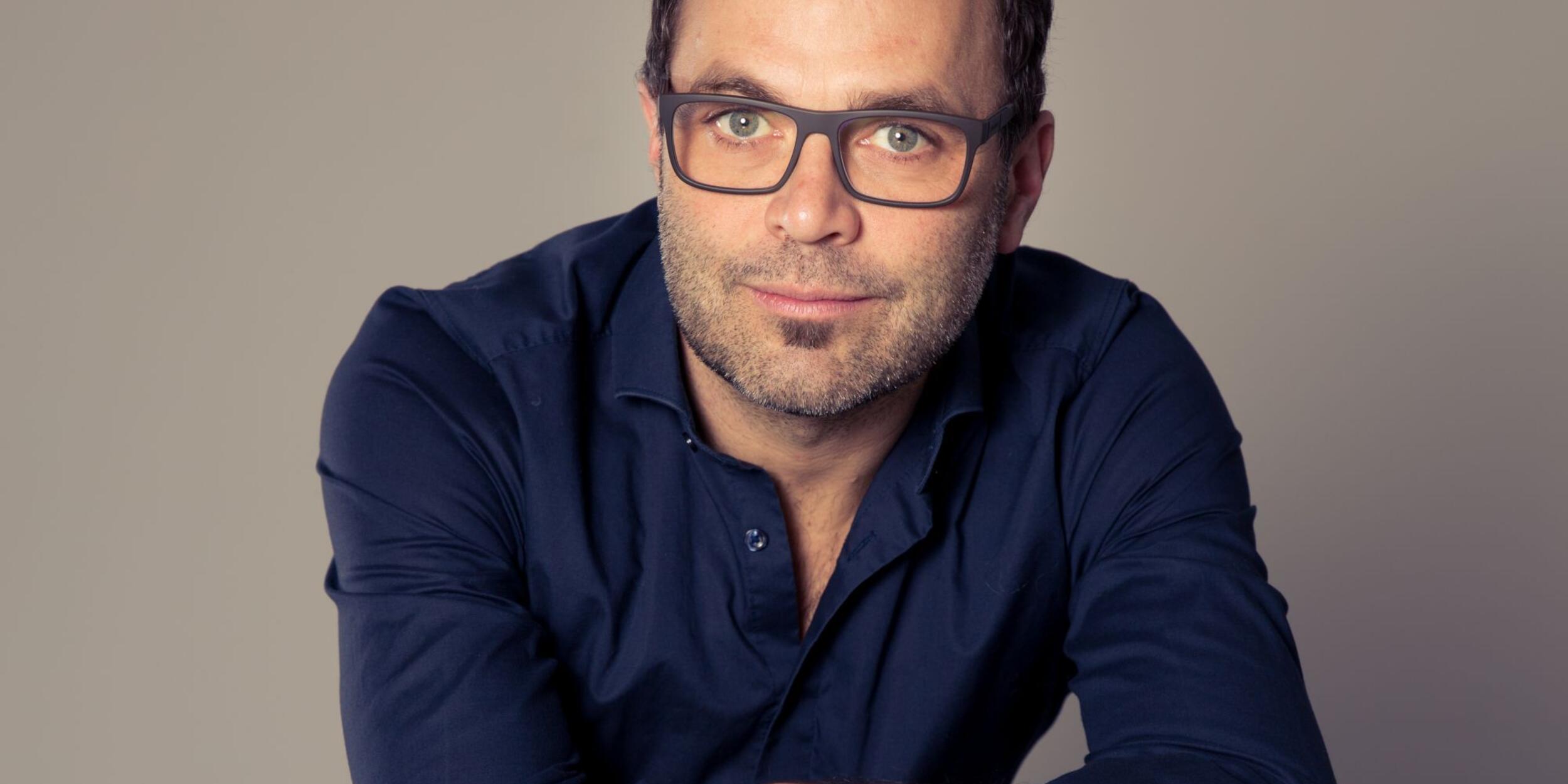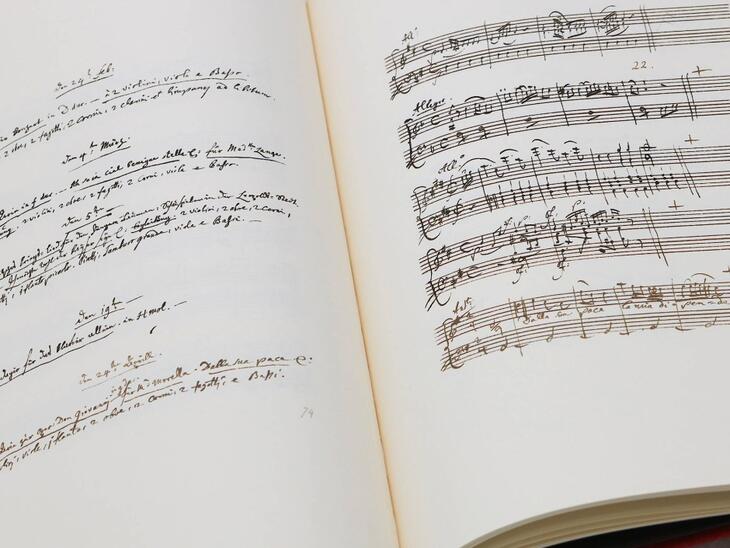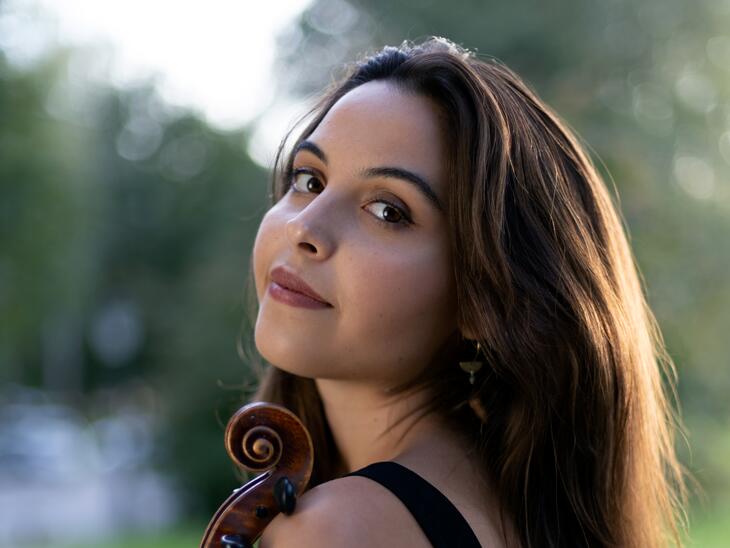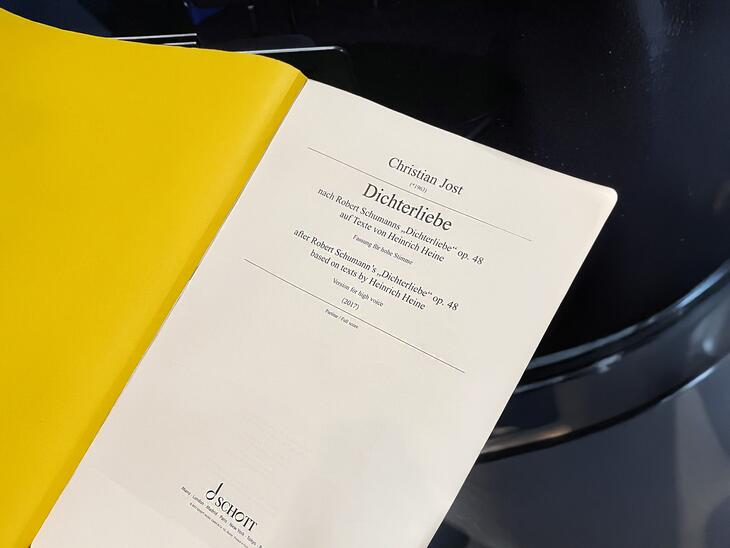Jörn Hinnerk Andresen already made a start in February 2021, using one of the first opportunities to perform cantatas by Johann Sebastian Bach together with the Mozarteum vocalEnsemble and the Baroque Orchestra of the Institute of Early Music, as well as with soloists from the vocal department or oratorio class - without an audience, but via livestream on the Internet. The sorely missed live feeling was overwhelming for all involved. "One orchestra member had to fight back tears during a rehearsal because music was finally being played with choir again. That made me realize how closely we are emotionally connected to choir," Andresen says. "New start" seems to be the overriding motto for Jörn Hinnerk Andresen's upcoming concert year. On June 5, the eagerly awaited "resurrection" of the choral concerts already took place with the oratorio "Paulus". The setting was the magnificent Salzburg Cathedral, one of the most impressive monumental buildings of the early Baroque period. Jörn Hinnerk Andresen also worked for "Paulus" with soloists from the Department of Voice, the MozarteumUniChor, the Dresden University Choir and the Mozarteum University Symphony Orchestra, a collaboration that also expressed the 30-year city partnership between Salzburg and Dresden. Using in part period instruments, the musicians gave the concert the authentic sound of the early Romantic period; this claim is due to Andresen's passion for authentic historical performance practice, as he says. This passion is also reflected in many of his upcoming projects. The next focus for him - in the belated Orff anniversary year - is "Carmina Burana," which will be performed at Szene Salzburg on June 25 and 26. With students from the percussion and piano classes, vocal soloists and the Mozarteum vocalEnsemble, a total of three concerts are planned, including one especially for schools. "Students will realize a moderated discussion concert for pupils, the theme will be prepared in advance by the teachers in class. The ,Carmina Burana' is immediate and rhythmically oriented. That is Carl Orff's great asset, that is, the physical possibility of reception of classical concert music. That's something that can still inspire young people today." On October 10, the Mozart Requiem will be performed together with a world premiere of Frank Schwemmer's "Spiegelung der Requiemfragmente" at the Mozart Forum in Mülln Parish Church. These days Jörn Hinnerk Andresen will receive the score for it: "I am already very excited! It's a great thing to be able to draw a bridge between the Mozart tradition and a new work written especially for this occasion. Frank Schwemmer also uses texts by Thomas Bernhard. This connection of Mozart and Bernhard to Salzburg across the centuries and into modern times is really very, very coherent." What is unusual here is that the works were written for baroque orchestra and will be interpreted by the chamber orchestra of the Institute for Early Music and the Mozarteum vocalEnsemble - which brings the work directly into the present day. The concert represents another interesting "new start" for Jörn Hinnerk Andresen at the beginning of the 2021/22 academic year. Under the title "Music Everywhere!" a concert will then take place on December 1 in the Domquartier with the chamber choir of the Institute for Early Music and the Mozarteum vocalEnsemble, including works by Andreas Hofer, Georg Muffat and Heinrich Ignaz Franz Biber from the musical culture in Salzburg from 1587 to 1803. And on March 13, 2022, a concert with the university orchestra and the MozarteumUniChoir is planned in the Great University Hall to mark the 350th anniversary of Heinrich Schütz's death. "We will combine the Brahms Requiem with Schütz's Musikalische Exequien, a work Brahms knew well. He was very interested in - from his time perspective - historical music and was influenced by Schütz in his works. We juxtapose that in the concert." With his projects, Jörn Andresen plans on the one hand to strengthen the external impact of choral music at the Mozarteum University, and therefore goes "out" with his concerts to other performance venues. The goal is to form choirs that represent the musical-artistic developments in this field outside the Mozarteum. On the other hand, he would also like to make the subject of choral conducting more attractive in the house. "Students in this need just as much as an instrumentalist, an instrumentalist a functioning instrument, an existing basis with which they can practice - we want to be able to form and provide that." In the long term, a cross-university choir for Salzburg, a large student choir, is on Jörn Hinnerk Andresen's list, and with it, opening up choral activities to all interested parties. "After all, we are only historically informed in historical performance practice; we don't know how it really sounded back then. The original sound image will always remain a hypothesis, authenticity combines with our present-day understanding, we develop the sound aesthetics for us, for our present-day audience - I personally find this path very interesting for choral work. Salzburg as a former church state is an exciting starting point to try this. You just have to try things out to see what remains, what can develop." It will be interesting to see what further plans Jörn Hinnerk Andresen pursues at the Mozarteum University and in the area of choral concerts. In any case, the "new start" seems to have succeeded excellently. (First published in Uni-Nachrichten / Salzburger Nachrichten on June 5, 2021)
